Reviews
Klopka
Srdan Gulobovic
Serbia / Germany / Hungary, 2006
Credits
Review by Tom Huddleston
Posted on 17 October 2007
Source Bavaria Film International 35mm print
Categories The Times BFI 51st London Film Festival
The moral dilemma narrative should perhaps be accepted as a literary and cinematic genre unto itself. From ‘Crime and Punishment’ to Crimes and Misdemeanors, such stories tend to recycle familiar elements, characters and themes: the ‘good’ man forced to do ‘bad’ things, the inevitable nervous breakdown which follows, a series of switchbacks and betrayals and a bleak, inescapable ending. Already this century has given us Match Point and Tzameti, among others. And now The Trap, which examines that oldest and thorniest of moral mazes: could you take a life in order to save a life?
Mladen is a happily married man, working as a low-paid civil contractor in the new, post-Milosevic Belgrade. But when his 12-year-old son Nemanja is diagnosed with a potentially fatal heart condition, Mladen and his wife Marija are expected to come up with 26,000 Euros to pay for his operation. They place an ad in the local press, as countless hopeful parents have before them, appealing to the public for help. But the only man who comes forward is the mysterious Kosta, who promises Mladen all the money he needs and more. There’s just one small thing he’ll have to do first…
Golubovic shoots his characters with a cold, critical eye, often marooning them in the wider landscape, or framing them so that parts of bodies and faces are obscured or missing. One extraordinary shot depicts Nemanja on a swing, oblivious to the coming tragedy, the camera placed in such a way that time and again he rushes, laughing, towards us, only to be jerked away at the last second. Modern Belgrade looks like your worst 1970’s nightmare, a labyrinth of post-Soviet industrial concrete, under lead grey skies that never brighten. A series of landscape shots depicting the entire city from Mladen’s balcony look like nothing less than a vision of hell frozen over.
Screenwriters Srdan and Melina Pota Koljevic do their best to sweeten the pill: in execution, The Trap is a very solidly constructed thriller, with all the plot twists and double crosses expected from the genre. Indeed, it could be argued that there are a few clichés too many, and there are a couple of moments - such as the sight of Mladen furiously washing his hands after committing murder - where we could be forgiven for feeling we’ve been here before, one too many times. The ‘trap’ itself is not entirely convincing. Either choice spells tragedy for Mladen—kill the man or kill the child, either way he loses his soul. But the outcome is inevitable, as it would be for any parent. We already know the decision Mladen is doomed to make, so the writers’ attempts to create tension out of his predicament fall somewhat flat. But once the deed is committed the film comes into focus, spinning inexorably towards a genuinely gripping climax, and a beautifully ironic twist: it is an act of kindness, not violence, which saves Nemanja’s life.
But what’s remarkable here isn’t the narrative, but the context and the setting. Mladen and his wife are staunchly middle class - a construction boss and a schoolteacher - but all their worldly possessions don’t add up to enough to save their son. The insurance companies and the government are ineffective and riddled with corruption, and the health service is hopelessly outdated (though it’s bizarrely nostalgic to see people smoking in hospitals). The only ones with any money in this scenario are the gangsters and corrupt businessmen—Mladen’s victim, Petar, drives an SUV and is buried in a gold-trimmed coffin. But such people are too concerned with their own obsessive acquisition to give even a fraction of their wealth to save a child’s life.
One extraordinary scene encapsulates the film’s philosophy, and it’s power. In an effort to ingratiate herself with someone wealthy, Marija takes a job as private tutor to a privileged child in her class. Taking a tour of the family home, she is shown an empty gold-trimmed picture frame on the wall, waiting to be filled. The girl informs her that the frame was acquired in Paris for 30,000 Euros, and is just waiting to find a painting worthy of it. Marija stares hopelessly at the frame, knowing that this empty shape left hanging on a wall is worth more than her son’s entire future.
This is the real moral dilemma The Trap presents a Western audience with, encouraging us to scrutinise not the characters onscreen, but ourselves. Life in this modern, supposedly revitalised Belgrade is worth nothing, less than a new picture frame or a nice car. If 26,000 Euros can save a child’s life, do any of us really deserve a new TV, a trip abroad? Mladen’s desperate, forgivable crime is insignificant when compared to the thousands of children who die needlessly every day, without a father to care, or to kill for them.
The Trap is a bleak, unforgiving film, and not the sort of viewing experience one would rush to repeat. But however harsh and nihilistic the film’s outlook may seem, this is a tragic reality, unflinchingly portrayed.
More The Times BFI 51st London Film Festival
-
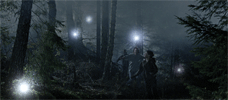
Island of Lost Souls
2007 -
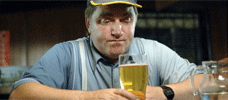
Garage
2007 -

Exodus
2007 -
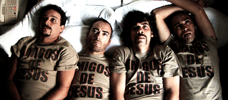
Friends of Jesus
2007 -

We Want Roses Too
2007 -
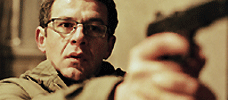
The Trap
2006 -

Captain Ahab
2007 -
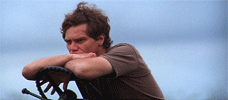
Shotgun Stories
2007 -
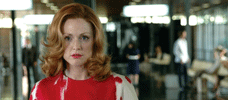
Savage Grace
2007 -

The Assassination of Jesse James by the Coward Robert Ford
2007 -

The World Unseen
2007 -

Things We Lost In The Fire
2007 -

Lions for Lambs
2007 -

Talk to Me
2007 -

Redacted
2007 -

Battle For Haditha
2007 -

Chaotic Ana
2007 -

Angel
2007 -

Juno
2007 -

Fay Grim
2006 -

Reservation Road
2007 -
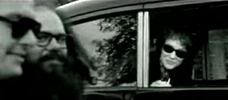
I’m Not There
2007
We don’t do comments anymore, but you may contact us here or find us on Twitter or Facebook.



